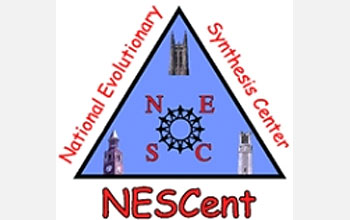News Release 04-151
New NSF Center Will Foster Understanding of Long-Standing Questions About the Vast Diversity of Life on Earth
December 16, 2004
This material is available primarily for archival purposes. Telephone numbers or other contact information may be out of date; please see current contact information at media contacts.
Arlington, Va.—A modest building will soon bring together millions of algae, bacteria, insects, sea slugs, worms, birds, mice, plants, people and a host of other creatures.
However, neighbors won't have to put up with a cacophony of buzzes and screeches; all the creatures will exist inside computers -- in the form of masses of data on their genetics, behavior and structure.
The building will house the new National Evolutionary Synthesis Center (NESCent), established in Durham, North Carolina, with a $15 million grant from the National Science Foundation (NSF). The evolution center is a result of collaborations among Duke University, North Carolina State University and the University of North Carolina (UNC) at Chapel Hill.
"This new center will transform evolutionary biology by tackling long-standing questions in a new way through science that is collaborative, and that synthesizes results," said Sam Scheiner, program director in NSF's emerging frontiers division, which funded the center.
The study of evolution encompasses a range of sciences -- from the molecular details of how a species' genes have mutated over time to the sprawling family trees of plants and animals. Scientists who study evolution include biologists, physicians, paleontologists, crop scientists and computer scientists.
"Information about biological evolution has exploded in the past several decades, fueled by advances in biodiversity, computation, genomics and many other fields," said Joel Kingsolver, a biologist at UNC and the center's associate director for science and synthesis. "Now is the time for synthesizing this information to gain a new level of scientific understanding about evolution, and to apply this understanding to important societal issues."
Until now, said the center's director, Clifford Cunningham, a Duke biologist, different scientific disciplines have too often concentrated only on their own pieces of the puzzle. The center's aim, he said, will be to help scientists assemble those pieces to see the broad picture of evolution. In a sense, according to Cunningham, each kind of researcher speaks a different scientific language, and the challenge will be to get them to learn each other's languages so they can collaborate to make advances in evolution.
The center will develop a common "language" to enable communication among disparate scientific information databases on the large number of organisms important in the study of evolution. "The scientific challenges of the 21st century involve coordination and management of data," said Dan Reed, leader of the center's computing strategy and a computer scientist at UNC. "The explosive growth of scientific data, captured by research collaborators around the world, necessitates new approaches to data storage, mining and presentation. By coordinating data, researchers will be better able to answer long-standing questions."
"Studies at the center will have applications that impact individuals in many ways, including forensics and agriculture," said the center's associate director for education and outreach, Greg Gibson, a geneticist at North Carolina State University. "Designing strategies for prevention of insecticide resistance, finding new approaches to environmental protection and developing a better understanding of humans' shared genetic heritage are objectives that require a new understanding of evolutionary processes," he said.
The center will emphasize educational programs in which scientists will communicate their results to policymakers. The educational programs will also help teachers develop lesson plans on evolution and interest students at historically minority colleges and universities in studying evolution. A network of educators and extension agents throughout the state will work to keep the public informed about the outcome of center activities.
-NSF-
Media Contacts
Cheryl L. Dybas, NSF, (703) 292-8070, email: cdybas@nsf.gov
Program Contacts
William E. Zamer, NSF, (703) 292-8421, email: wzamer@nsf.gov
Judith E. Plesset, NSF, (703) 292-8417, email: jplesset@nsf.gov
The U.S. National Science Foundation propels the nation forward by advancing fundamental research in all fields of science and engineering. NSF supports research and people by providing facilities, instruments and funding to support their ingenuity and sustain the U.S. as a global leader in research and innovation. With a fiscal year 2023 budget of $9.5 billion, NSF funds reach all 50 states through grants to nearly 2,000 colleges, universities and institutions. Each year, NSF receives more than 40,000 competitive proposals and makes about 11,000 new awards. Those awards include support for cooperative research with industry, Arctic and Antarctic research and operations, and U.S. participation in international scientific efforts.
Connect with us online
NSF website: nsf.gov
NSF News: nsf.gov/news
For News Media: nsf.gov/news/newsroom
Statistics: nsf.gov/statistics/
Awards database: nsf.gov/awardsearch/
Follow us on social
Twitter: twitter.com/NSF
Facebook: facebook.com/US.NSF
Instagram: instagram.com/nsfgov



